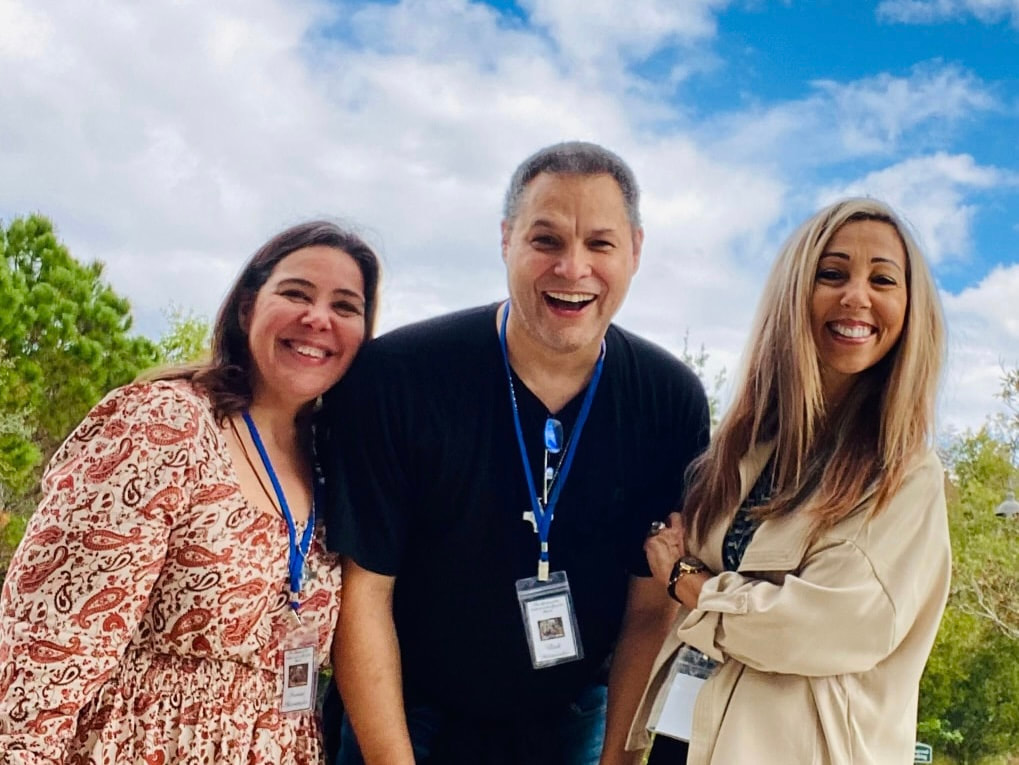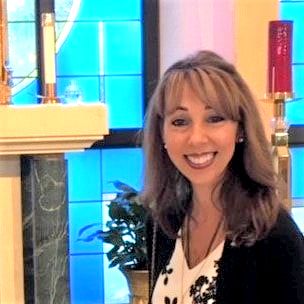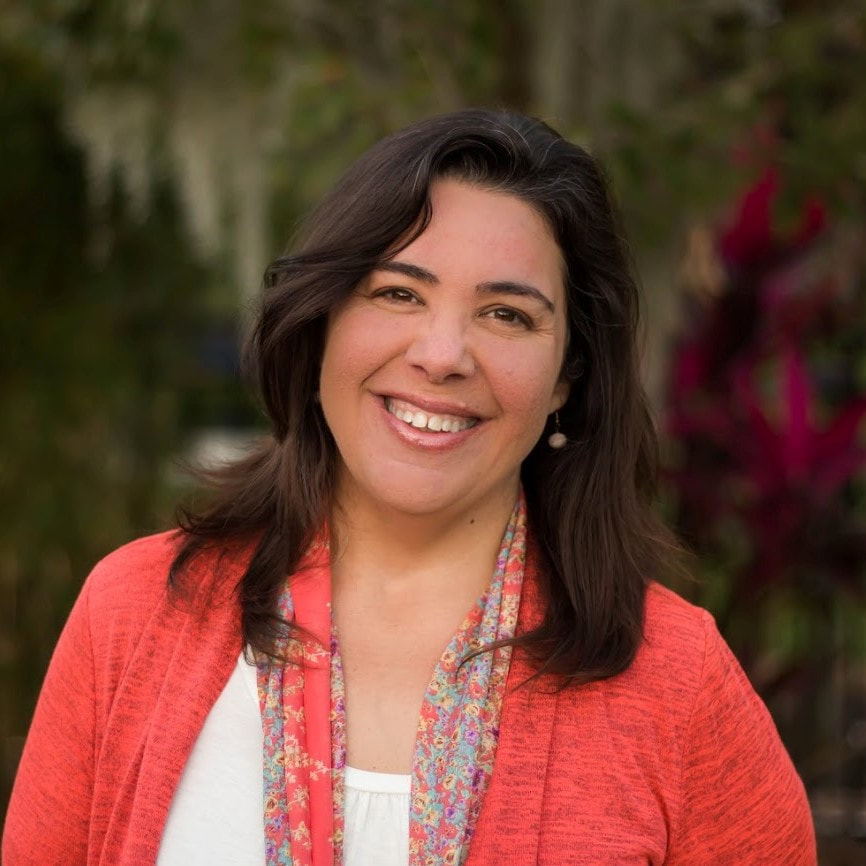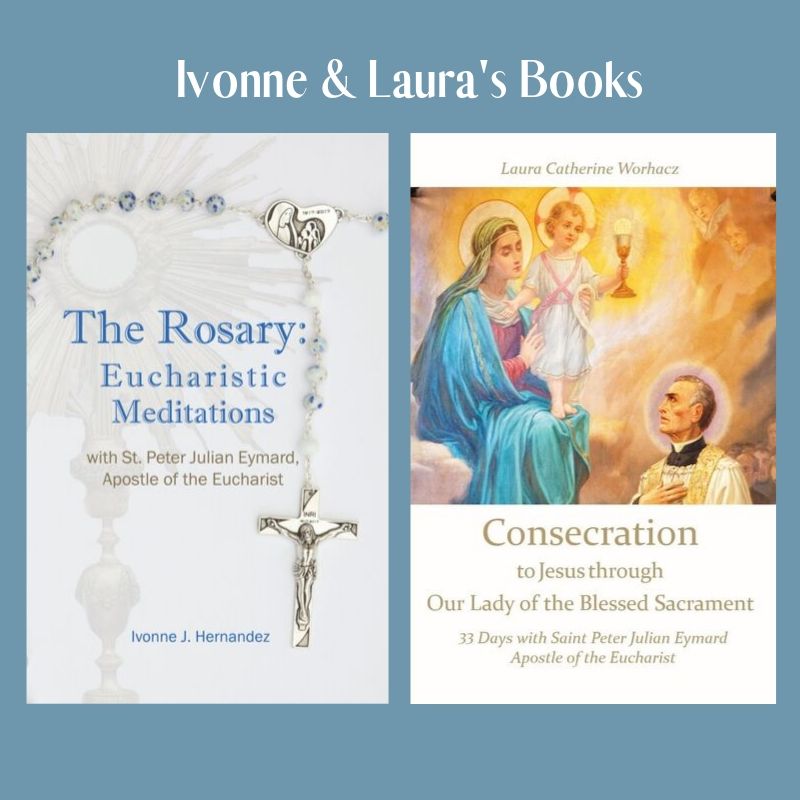ELISHEBA BLOGLaura, Ivonne, and Rick
write about their lives in the Eucharist. |
|
Dearest Eucharistic Family, July has always been my favorite month of the year. It represents summer, taking a break before the busy fall and holy holiday season come. July, the month of the Most Precious Blood in our Catholic Church, also represents for us the love of Christ that was poured out for us on the Cross and remains with us on the Altar. In one of my daily invocations, I ask Jesus, “By Your Precious Blood pour forth Your grace, Your love, and protection over my family and all my loved ones, keep them safe in their travels.” It is in the power of love that our offering is taken and given. One day during Mass I offered prayer for a certain sister in Christ who was suffering from heart issues; identifying with all she was going through while caring for her large family, my heart brought her issue to my tears. Later that day I received a text that she was feeling better, and her doctor diagnosed her and recommended a prescription to care for her medical condition. God made known to me the power of His grace and the love that extended to the intercession of prayer for this dear lady’s healing.
We hold God’s love by taking of it and sharing it. The Eucharist brings the presence of Christ to our lives on earth. This gift of God’s love changes everything, with the bread and the wine changed, we are changed when we consent to God’s grace. Cleansed of our sin, the return of our love manifests a deep intimacy with Christ. In the union of His love, miraculous things can happen. Taking hold of His love brings to birth the miracle of God’s love.
In this passage above we learn of God’s desire for us to place Him before anyone or anything in our lives. In our love for one another, “Through Him, with Him and in Him,” we unite in the mystery holding onto the love promised to us by our God. In the gift of July, we are invited to meditate on the gift of God’s love poured out on the Cross. This blood has sanctified our lives and gives us the life that pulsates from the Altar where the Eucharist is confected, and we are invited to share in the sacred mysteries by partaking in the life-giving blood of JESUS CHRIST. On many tabernacles, we find the symbolism of the pelican. It is a natural inclination of a mother bird to feed her babies.
How blessed we are to live in God’s love.
0 Comments
Have you ever been asked to do something you think you are not very good at? Perhaps it is public speaking or singing… Maybe we’ve been asked about our faith, and we don’t think we have the right words, or enough education to answer properly. How often do we forward someone a YouTube link as an answer rather than sharing what’s in our hearts? When someone comes to us, they are not looking for information; they are looking for connection. They are looking for a witness to point them in the right direction. We are built for witness. Whether we are giving words to our experience or being the one listening, bearing witness is a powerful experience. To bear witness is “to show that something exists or is true” (Merriam-Webster Dictionary). And when we get to “witness” someone “witnessing to love” our hearts respond. Sometimes we bear witness with our words but let us remember… love is a verb. When a priest for whom singing is not a gift, sings during the Liturgy, my heart is deeply moved. It feels as though I am witnessing a very intimate moment between Jesus and his priest, a moment of pure love. It reminds me of when a child’s Mother’s Day gift comes as a messy kitchen and half-burnt toast but is really a gift of love. In these moments of vulnerability, the imperfectness of the gift is inversely proportionate to the perfectness of the love.
Moments that pull at our heartstrings are a gift from God. When we allow the notes to resonate in the chambers of our hearts, they expand our capacity to love. It is as if when God knit us in our mother’s womb (Ps 139), he left strings hanging from our hearts on purpose. Strings to bind us to one another, strings to guide us deeper into his love.
So many broken hearts need to hear that “the Kingdom of heaven is at hand. Cure the sick, raise the dead, cleanse the lepers, drive out demons” (Matthew 10:8). This is what we are told to do, but how can we do this if we forget who is our healer? If we forget to look for Him on the cross? It is in the ugliness, the messiness, the vulnerability of the cross, that we see the perfect love of God. Let us look at the cross and allow our hearts to be pulled, stretched, and tugged, until, becoming completely vulnerable, we share the gift of our very selves for love.
This is the beginning of the Parable of the Prodigal Son. The word “prodigal” means to be recklessly wasteful with our resources, spending our riches, talents, and gifts for no benefit. We do not want to be prodigal. I sometimes think of the many gifts that we are given and how we squander that beautiful inheritance and end up depleted. For many of us, it is not until we realize that we are barren from our wastefulness that we remember that it is not meant to be this way. Spiritually, wasting our gifts on our own desires and sins separate us from our Heavenly Father. This is sometimes done consciously and other times unconsciously. In the search for our own desires, we can forsake our dignity as sons and daughters of the Most-High, breaking our relationship with the Father. Yet, the same as the father in the story, God always acknowledges our dignity. He is always waiting for us to return, but to return we must consciously take that first step on the journey back to who God calls us to be.
We read of the repentance of the son coming from the realization of that which was lost, spent, and wasted. Do we realize this as well? Can we see all that we have been gifted, and all that we have wasted? Like the Prodigal Son in the parable, shouldn’t we also turn back? We repent from our selfishness, and gain humility in truth from our faults… We go back home to our Father, yet so many of us fear that we can’t be forgiven; that we can’t go back; that we can’t live a righteous life again… We must fight that fear from the lies the enemy sends our way. The enemy will tell us that we cannot go back to a life of Grace, and that we cannot be redeemed nor loved again. Who does this liar thinks he is that he can try to keep us from the One Who Loves Us? Let us not believe the lies of the enemy, Our Heavenly Father awaits us, just like the father in the story of the Prodigal Son.
When the father sees the son coming, he runs to the son! How much more would our Heavenly Father do for us? God reclaims us when we repent, runs to meet us with open arms, and thus restores our dignity as His sons or daughters. In the story, the father gave the son three things:
God forgives us. He restores us and gives us a purpose to live for, but He needs to hear and see our repentance.
If we have broken trust with the Father, we would do well to atone. Like the Prodigal Son, we acknowledge our faults and ask forgiveness, and to do that we approach Him who loves us. The Sacrament of Reconciliation is where we go to do this. We approach with humility, love, and hope. Through our sincere repentance and the Sacrament of Reconciliation, we are reclaimed and restored.
In my carefree youth, whenever I did something wrong, I doubted my worth and value. This would show up behaviorally as depression and sadness, and it was very rough for me. My parents would notice my struggles and embrace me. I was lovingly reminded that I was not perfect and that I was not expected to be. I was reminded that we are meant to ask for forgiveness, learn from the experience, and do better next time. This embracing and teaching from them was their love for me in action. It was them claiming me. And is not God’s love for us greater than our parent's love? We learn from our faults and commit to do better. We repent and let ourselves be loved and claimed. Our Father loves us, but it is on us to act as the sons and daughters of God that we are. After we are again restored, we are to live our gratitude. Our very lives are our gift to the Father as an offering of love.
At every Mass, we can approach the Throne of Glory, Mercy, and Love. Let us humbly approach in our dignity as sons and daughters. Let us imagine ourselves in the river Jordan, soaking wet in our white garments while being presented to the world, our dignity acknowledged as we hear our Divine Father say to us "This is my beloved, in who I am well pleased" and let us stay there for a moment… Let us allow our loving Father to embrace us and let Him bask in the love He has for you, for me, for us... He is claiming us as His sons or daughters. He is doing this for all to see... such is His love for you and me. Our Father is here for US. How will we respond? Let us pray: Heavenly Father, we are your children, your beloved. May we be ever reminded of our dignity as Your very own at every moment of our lives, that we may glorify You in all that we do and wherever we go. Amen.
|
Categories
All
FOLLOW US ON SOCIAL MEDIA:
AuthorsWe are Ivonne J. Hernandez, Rick Hernandez and Laura Worhacz, Lay Associates of the Congregation of the Blessed Sacrament, and brothers and sisters in Christ. |
Copyright © 2024 Elisheba House Inc.
Elisheba House is a 501(c)(3) non-profit organization. Federal Tax ID Number 84-1894146
Florida registration for Solicitations of Contributions #CH71652
A COPY OF THE OFFICIAL REGISTRATION AND FINANCIAL INFORMATION MAY BE OBTAINED FROM THE DIVISION OF CONSUMER SERVICES BY CALLING TOLL-FREE (800-435-7352) WITHIN THE STATE. REGISTRATION DOES NOT IMPLY ENDORSEMENT, APPROVAL, OR RECOMMENDATION BY THE STATE.
Florida registration for Solicitations of Contributions #CH71652
A COPY OF THE OFFICIAL REGISTRATION AND FINANCIAL INFORMATION MAY BE OBTAINED FROM THE DIVISION OF CONSUMER SERVICES BY CALLING TOLL-FREE (800-435-7352) WITHIN THE STATE. REGISTRATION DOES NOT IMPLY ENDORSEMENT, APPROVAL, OR RECOMMENDATION BY THE STATE.









 RSS Feed
RSS Feed